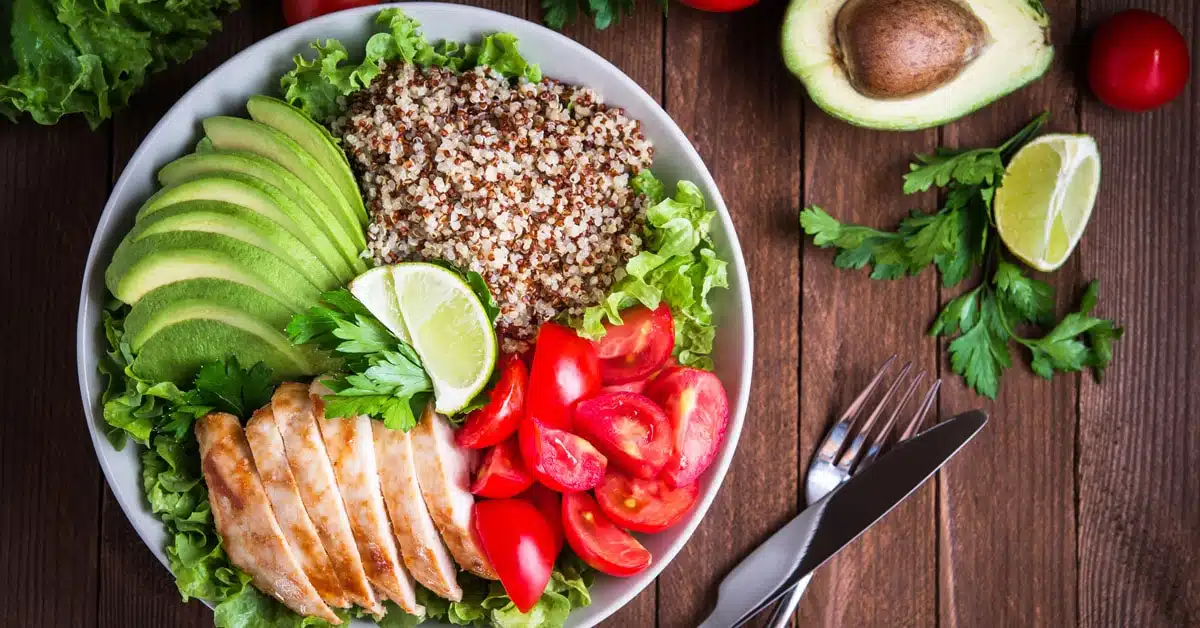For many people, the dawn of the new year represents the ideal time to make good resolutions for the coming 365 days and to cut off old pigtails in the form of bad habits. The practice, which is particularly common in everyday life, can easily be applied to athletic goals, whether it is building muscle mass or reducing body fat. The most important aspect in this context is the diet, which, like the training, should be meticulously planned, so that the good intentions can be optimally kept over the entire year and are not thrown overboard after a few weeks. For this purpose, we will give you 6 tips in this article that will help you achieve your goals in any case.
Tip 1 - Decide wisely
Before you decide to follow a new nutrition concept, you should put it through its paces and refrain from choosing the next best thing just because it promises the fastest success. It is also necessary to make sure that the system behind a concept fits your personal goals and requirements, otherwise the risk of failure increases significantly. Accordingly, the focus at the beginning is on defining your personal long-term goal, since there is a significant difference in terms of food selection whether you want to lose body fat or build lean muscle mass. Once your goal is set, it's time to adjust the macronutrient distribution so that you can generate a guideline to guide your daily food choices.
Tip 2 - Plan your daily meals
The best foundation is of no use to you if you don't follow it consistently, which will definitely be the case sooner or later if you don't show planning discipline right from the start. Accordingly, it is advisable to plan the individual meals for the next day in advance, as spontaneous hunger attacks due to lack of preparation can cause you to fall back into old behavior patterns in the long run. Since it is very time-consuming to plan each meal separately, it is a good idea to take half an hour on Sundays, for example, to roughly outline your diet for the coming week. As a result, you can buy the food you need all at once, so you don't have to do it on the spur of the moment every day. For this purpose, you should also write yourself a shopping list that you stick to consistently, which minimizes the risk of sinking unwanted calorie bombs in the shopping cart.
Tip 3 - Prepare your meals in advance
Once you've planned your meals for the week, it's time to put them into practice, which can be tricky because your job, school or university life can often get in the way of your healthy lifestyle. To avoid this pitfall, you should prepare your meals at least a day in advance, so that all you have to do is take them out of the fridge and eat them. Since this process is also time-consuming, it is a good idea to prepare larger quantities at the same time so that you are supplied with healthy food for several days without having to cook fresh every day. Furthermore, it is always worthwhile to store some portions in the freezer, so that you are always able to provide your body with varied healthy food.
Tip 4 - Food to go
In our fast-paced times, it's not uncommon to run out of time to cook ahead, so you should always have a plan B in place. A perfect way to provide your body with high-quality nutrients despite a chronic lack of time is to always have some protein-rich foods on hand that you can easily consume on the go. True classics in this context are sugar-free granola bars, nuts, beef jerky, fried chicken strips and protein shakes. Furthermore, numerous supermarket chains are currently following the fitness trend and stocking their refrigerated shelves with various ready-made meals that, at least in the broadest sense, correspond to the ideal of a healthy diet. However, if you decide to stock up on such meals, you should first study the labels to make sure that the products do not contain any unnecessary additives.
Tip 5 - Focus on natural food
No matter which credo your nutritional concept is ultimately subject to, you should always make sure that you consume predominantly natural, unprocessed foods and prefer them to industrially manufactured products whenever possible. This is due to the fact that unprocessed foods are not only free of additives, but also usually have a significantly higher proportion of essential micronutrients that support your goals by optimizing the physiological metabolic processes of your body. Conversely, this does not mean that you should avoid packaged foods altogether, but simply that you should not use them to cover the majority of your nutritional needs.
Tip 6 - Keep a food diary
By far the most important measure to guarantee the lasting success of your plan is the consistent recording of your daily nutrient intake, as this is the only way to seamlessly monitor and control it. The recording with the help of an app or old-fashioned in a diary, helps you to uncover small sins that have so far been a stumbling block for your progress. Modern apps even allow you to monitor your micronutrient consumption in detail, which is just as important for the optimization of the entire nutrition concept as the control of the macronutrient distribution.
YOUR NUTRITION PLAN
Do something good for your body.
Eat like an athlete! Proper nutrition accounts for over 60% of your success. Get fit!
- Individual determination of your daily energy needs, on training and non-training days!
- No stubborn and monotonous diet plan! You can decide for yourself from many different options, what you just feel like!
- Cheatday every Sunday (for 4 & 5 training days).
- All meals/recipes for main meals and snacks with pictures and nutritional information.
- With nutrition tables - adapted to all daily meals.
- Important info material on athletic and healthy nutrition included.
- 41 pages of possible meals, snacks and recipes.
- Just match your diet to your schedule/workout program week by week.
- Customizable.






